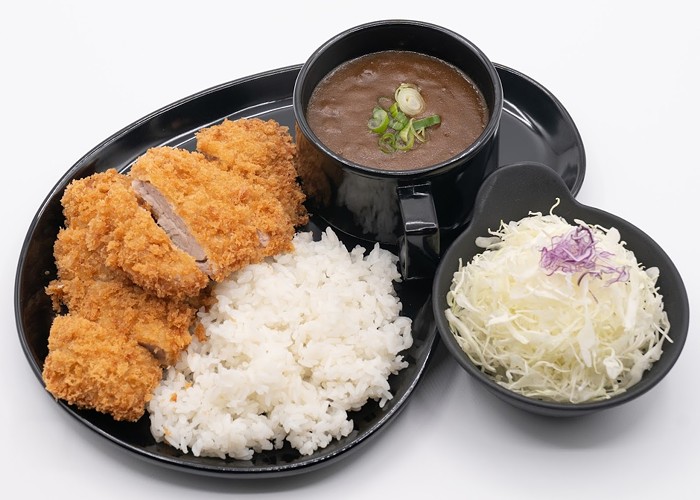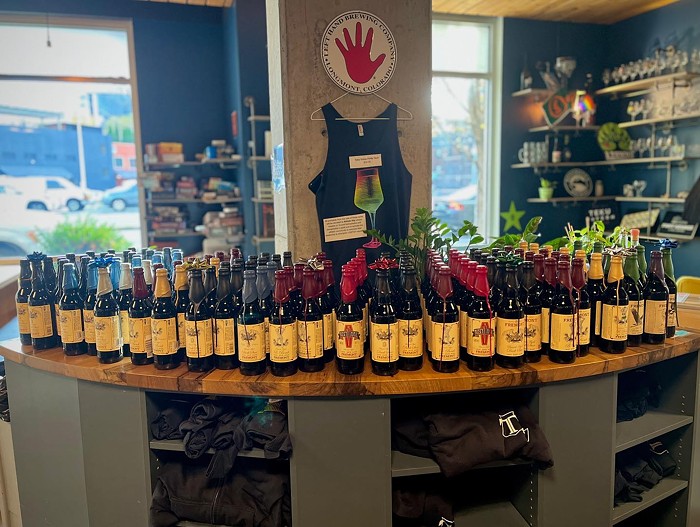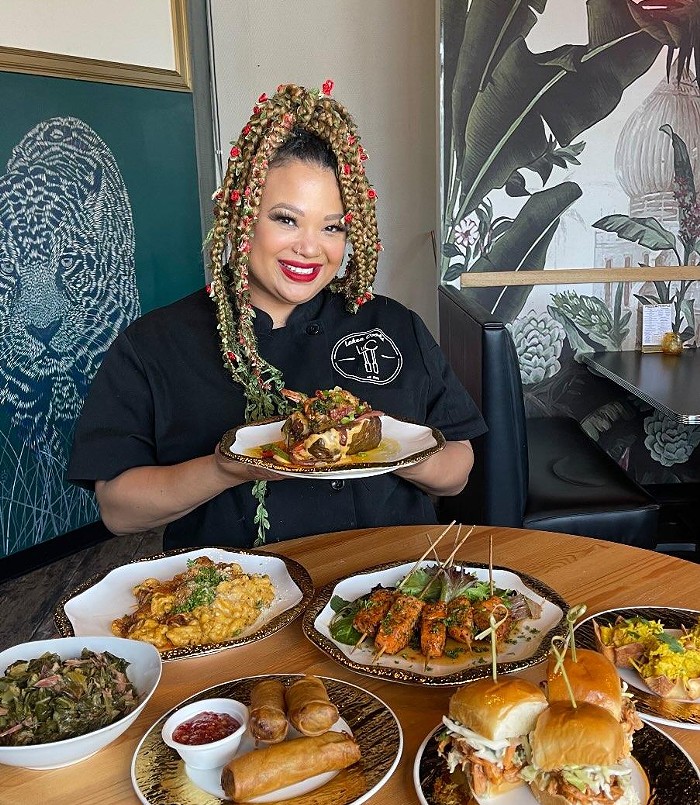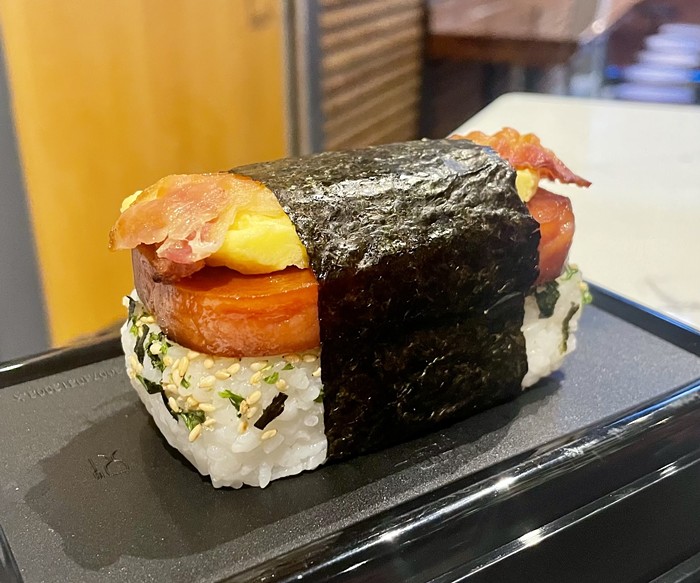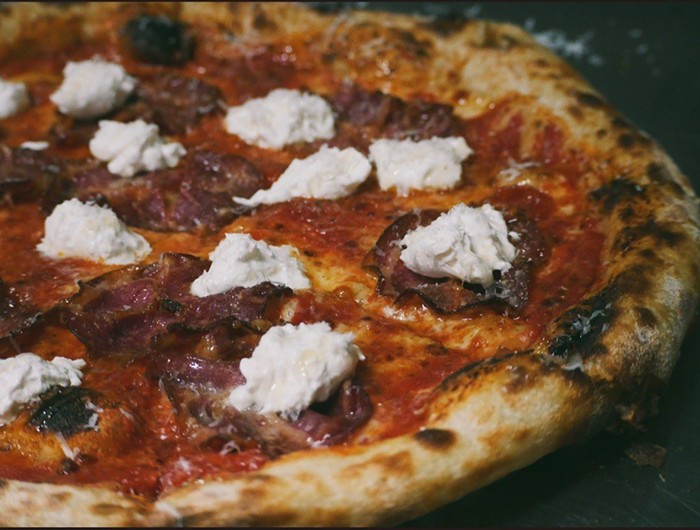
Last week, the Seattle Weekly reported that two senior citizens, residents of the Lower Income Housing Institute's (LIHI) Bart Harvey apartment building in South Lake Union, were singled out and asked to leave a line of more than 100 people waiting to receive free sandwiches during the grand opening of popular sandwich shop Meat & Bread.
It was not Meat & Bread's employees, but employees of G4S, the private security company retained by property manager Blanton Turner on behalf of Skanska, the owners of the 400 Fairview building, who were responsible for removing the seniors, an elderly Hispanic man and a Sudanese man. Despite Meat and Bread's quick apology to LIHI and attempt to clarify that everyone was welcome at the grand opening, reaction to the story, which spread widely on social media, was strong. Many Seattleites emailed Meat & Bread's corporate office in Vancouver and took to Twitter and Facebook to declare their outrage.
"Frankly, [the anger] at Meat & Bread is misdirected," says Sharon Lee, executive director of LIHI. Last week, Lee had told the Weekly that her organization held the sandwich company responsible. But now, after speaking at length with Dave Neill, a partner at Meat & Bread, she says, "This is not their practice. I believe we can have good relationship with them moving forward."
"This really hurts me. It puts knots in my stomach," says Neill. "I can deal with the challenges of running a business, but this is frustrating because it’s just not who we are as a company."
Since the incident, Meat & Bread has apologized and provided gift cards for free sandwiches to all 50 residents of the Bart Harvey. Neill and Lee have also talked about ways Meat & Bread can partner with LIHI to do work in the community.
"We can’t reverse what has been said. We can only move forward," says Neill. "And our actions going forward will show people who we are."
While Lee is hopeful about the impact Meat & Bread can have as tenants in the neighborhood, she is concerned about what the sandwich shop's landlords are bringing to the neighborhood.
"The question is, 'Why is a security guard hired by the building owner discriminating—and perhaps even racial profiling—against neighborhood residents?' I am very concerned about what this is saying about who can and cannot enter their buildings," she says.
Lee points out that the area, which was called the Cascade neighborhood long before it become known as South Lake Union, is one of the city's oldest residential neighborhoods. But in a rapidly changing city filled with new developments and higher-income residents, the Meat & Bread incident strikes a chord that goes well beyond the neighborhood. It resonates with the anxiety of longtime Seattleites who see the city's landscape and lifestyle transforming into something new and unrecognizable.
"Our residents have been here for a long time—prior to affordable housing structures, prior to Amazon showing up," says Lee. "And it’s very concerning that now there’s a sense that they don’t belong. Now that there are new neighbors, historic residents feel like they are being shunned, that they are not the the population these new neighbors wants to see there."
Leigh Cristobal, property manager for the 400 Fairview building who manages the security services contract with G4S, calls the incident a "miscommunication." Because Meat & Bread had extended invitations to nearby businesses such as Amazon and Tommy Bahama, Cristobal says security guards believed the opening event was "invitation-only."
There were no physical invitations given out, so I asked Cristobal how security guards might distinguish, in a crowd of more than 100 people, between who was "invited" and who was not. She said that most people in line had "ID badges from within the building, while other people in line had Amazon blue badges. We’re familiar with that. And so they were identifiable to security staff."
"At this point, we want everyone to feel welcome in the Market Hall. It is a public space," says Cristobal. "We know the miscommunication is not an excuse. We want to apologize. We want to continue working to make sure that these sorts of events don’t occur."
Sharon Lee wants an apology from the building owners, both for her residents and for her neighbors Meat & Bread, who she says have suffered a negative impact on their image and income. She reached out to representatives of both 400 Fairview and Skanska last week.
"We haven't heard from them," says Lee.
